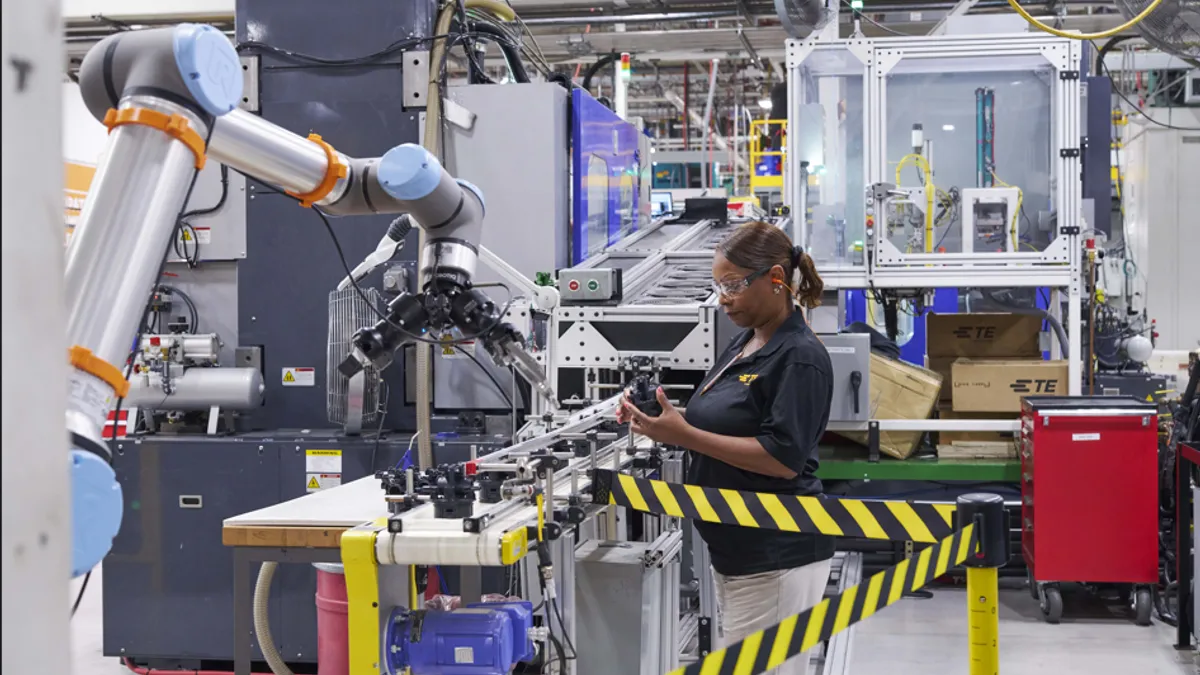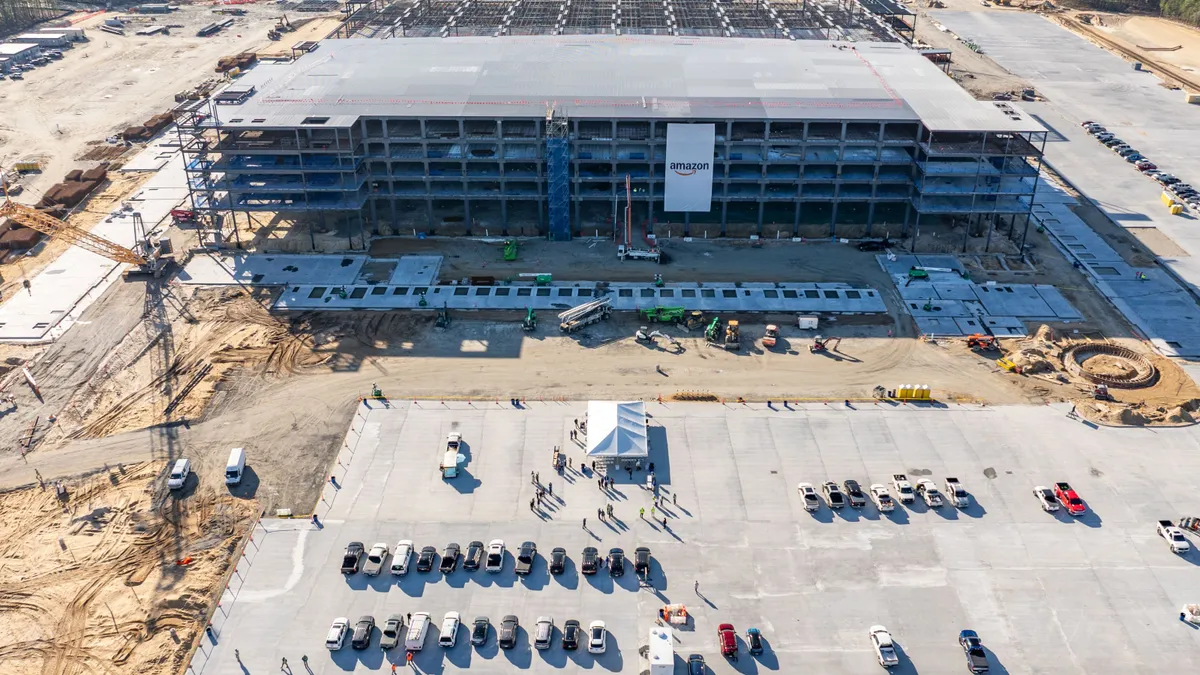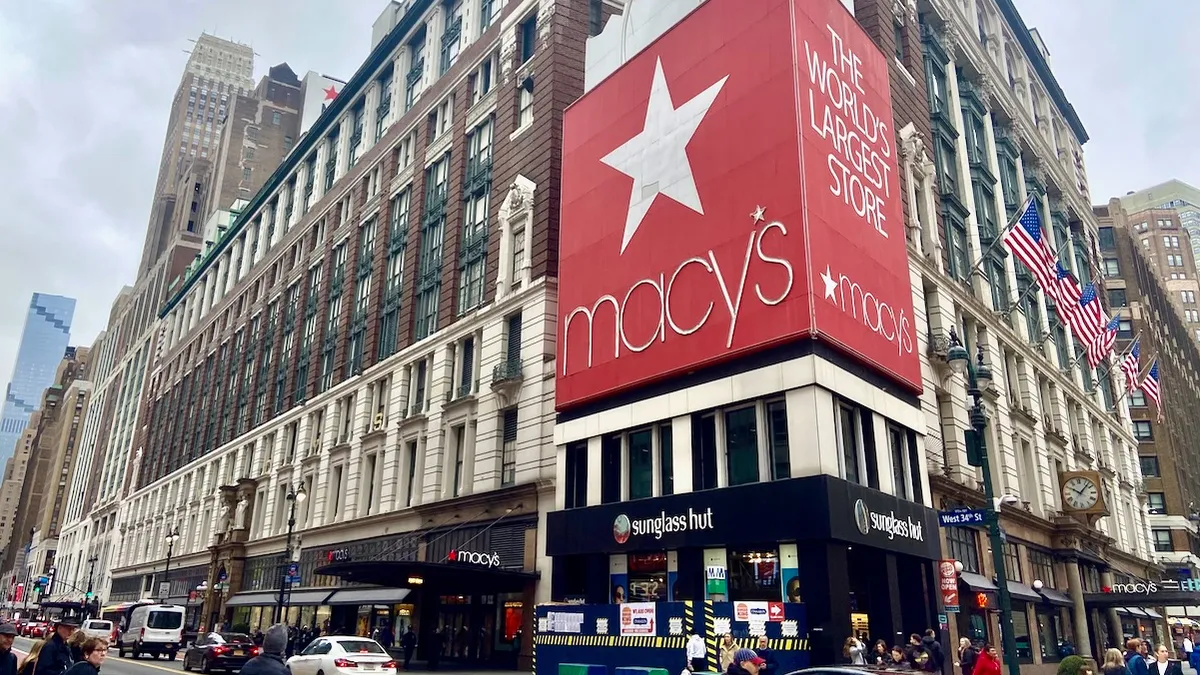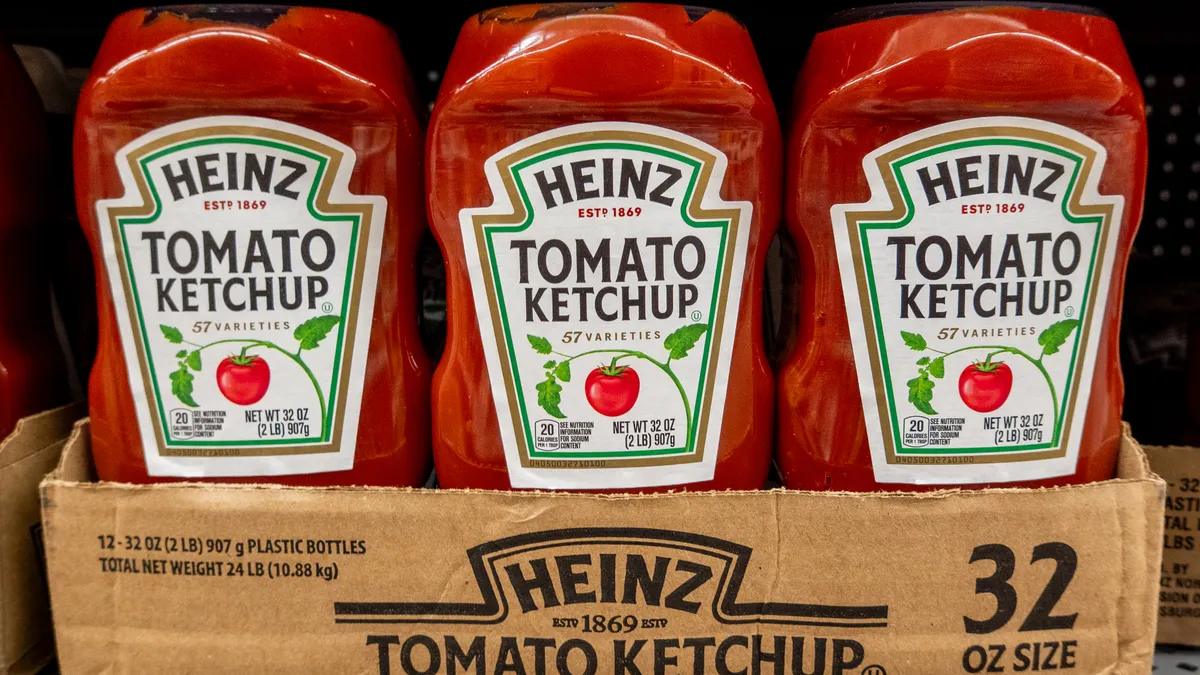Supply chains are constantly changing as new rules, technologies, resources and market trends transform operations. Here's a skim of the week's indexes, technology announcements, expansions and M&As from around the web.
In Case You Missed It:
- Blockchain could serve as a tool to decentralize supply chains.
- 2017 may be the most active year in e-commerce deals since 2013.
- Nike will, for the first time, regularly accept third-party audits on supplier factories.
Market Snapshot
Recent weather disruptions across the world will have a severe impact on production, so let's take a moment to review the trend: production is rising, consumer confidence is on the upswing, unemployment is falling and in general the economy is improving.
These trends have weathered all sorts of disruptions, from a rise in global trade protectionism to winter storms and consistent increases in interest rates. August and September figures will serve as a better measure for the effects of natural disasters on the economy than they will as an indicator as to the state of the economy.
Bloomberg's daily review of economic indicators has consistently warned of early conclusions. On Tuesday, the Market Focus read, "Don't get fooled by a big drop in July factory orders; it will be due to a swing lower for aircraft. Underneath the report strength is the call." That same day, the Institute for Supply Management released their monthly Manufacturing ISM Report on Business, which revealed the highest level of manufacturing activity in six years, according to The Wall Street Journal.
As a result, it will be all the more important to compare Q3 and Q4 economic indicators on a yearly basis, rather than a month-to-month. Early reports indicate Harvey, and now potentially Irma, will lead to billions of dollars of losses for the economy. It may even affect annual GDP.
But, so long as the basic economic indicators remain strong despite production shortfalls, growth should remain on an upward trend.
Technically Speaking
Deliv, a crowd-sourced same-day delivery startup, says it now services 4,000 retailers, 33 markets, and 1,400 cities and now considers itself a competitor to Amazon, according to TechCrunch. Deliv says it has a footprint “the size of Prime Now,” which is a big deal in the e-commerce market, because Amazon still holds the biggest market share when it comes to e-commerce and fast, free shipping. Amazon certainly still has a lion's portion of market share, but if Deliv keeps growing, it could materially disrupt the market.
In other news, Nissan just launched its new Leaf electric car, which will be available for purchase in Japan in October and in the U.S. and Europe in January, according to the Wall Street Journal. Until recently, Tesla has operated in a mostly competition-free zone, but Nissan is selling the new Leaf for less than $30,000 in the U.S., which means it will directly compete with Tesla’s upcoming Model 3, which will start at $35,000.
Since the Nissan Leaf launch date, the car has gleaned more in sales than Tesla’s most successful car, the Model S, according to data compiled by the Wall Street Journal. This means Tesla will need to step up its game with the Model 3 as the carmakers race to produce the best affordable, sustainable personal vehicles for consumers.
Breaking Ground
Earlier this week, Kansas City Southern and Bulkmatic Transport struck a deal to build a $50 million liquid fuels train terminal in Mexico as part of their plan to expand liquid fuels export to that country, according to Progressive Railroading.
The deal comes in response to Mexico’s 2014 energy reform legislation encouraging more foreign imports. The big question, of course, will be how NAFTA 2.0 affects this plan — while the new trade agreement is nowhere close to deciding anything, the final agreement could alter or severely cripple Kansas City Southern and Bulkmatic Transport’s attempt to export more liquid fuels to Mexico.
Meanwhile, Amazon is rapidly expanding its Ohio presence, growing outwards from its huge hub in Columbus; the Dayton Business Journal reported last week that Amazon will spend $30 million on a new fulfilment center in Monroe, OH, which will employ 1,000 full-time workers.
In other news, Japanese logistics company Nippon Express announced it plans to raise $912 million over the next two years to build a series of warehouses with new “labor-saving equipment,” according to the Nikkei Asian Review. The company plans to raise the money in debt capital so as to take advantage of lower interest rates, and the rationale behind “labor-saving equipment” is tackling the rampant Japanese labor shortage. So while Nippon’s plan might not necessarily create a multitude of new jobs, it will certainly implement cutting edge technology to slash costs and increase savings.
Mergers & Analysis
Swift Transportation's mega-merger with Knight Transportation will close today, after shareholders approved the deal in a special meeting Thursday.
The deal was originally proposed in April and dominated headlines for its creation of a top-five trucking company by revenue. It also highlighted the value of good business management, as Knight's owners — which operate the smaller of the merging companies with $1 billion in revenues in 2016 — are expected to take over operations of Swift to improve the latter's finances.
The deal's pertinence was never questioned, and the Federal Trade Commission quickly approved the request to merge. However, Swift is four times the size of Knight in both assets and revenues, and will prove a challenging transition for the two trucking companies.
Speaking of challenges because of mergers, The Loadstar reports Chilean carrier CSAV said it would lose $167.2 million because its shares in Hapag-Lloyd were diluted after the merger with UASC. While not an unusual circumstance, the loss shows one reason why a shareholder may, in general, choose to oppose an asset's merger or acquisition.
Fortunately, many acquisitions are readily accepted by shareholders. In recent news of deals, technology firm Pitney Bowes bought Littlejohnn's parcel logistics segment this week; Radiant Logistics acquired Sandifer Valley Transportation; and Daseke will merge with R&R trucking to improve its specialized equipment portfolio.




















